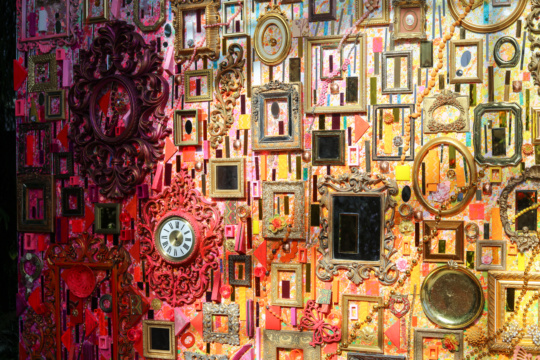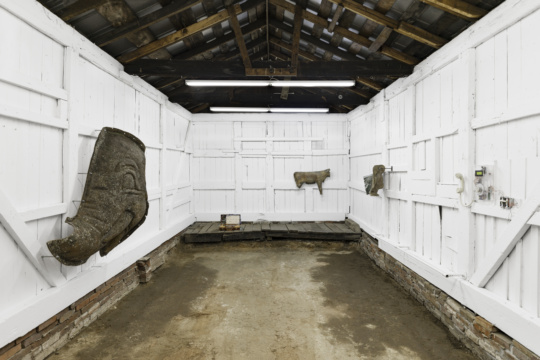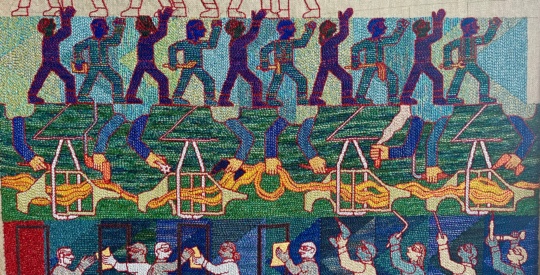[cont.]
“Lori will beat herself up and then find someone else to protect and serve. What is it with women picking defective men to fix? I just don’t get it.”
How could she not have recognized this before? Tommy is crazy in love with Lori and she doesn’t even see it.
“He seemed so fragile…”
Tommy interrupted her. “The truth is Hondo was depressed. I’m depressed. Lori is depressed. Depression is common with observant people.”
“He didn’t seek help?”
“You’d think with a shrink on every corner he could find someone to help him, but he preferred drugs.”
“His art…”
“Odessa, be real. My eight year old niece takes better pictures than he did. And if she took pictures of kiddie orgies with cool new technology, she’d be world famous too. It was the sexy content that made his reputation, you know, not the pictures themselves.”
Anger is a huge part of the initial grieving process. Being the wife of an oncologist meant Odessa had observed way too many people going through the stages of grief. The anger was the hardest part to witness and the hardest part to survive. Lori’s rudeness was clearly a quieter, less aggressive form of anger. Tommy’s anger distorted his usual sweet, goofy self into this snide, unpleasant resentment. Odessa watched him guzzle the wine, too absorbed to even notice she was still in the room. Self medication is another common response to grief. Hell, it’s a common response to life. Still, the more Odessa considered Tommy’s assessment of Hondo’s work, the more inclined she was to find merit in it. It was the titillation which made them memorable. They didn’t really stand up, though, in comparison to the work of Robert Mapplethorpe. His homoerotic photographs managed to fuse the naughty with classic composition. They were elegant and lewd and the tension between the two provided another layer to appreciate. Hondo’s didn’t have that. Or did they have something she wasn’t seeing? It’s easy to spot bad work, mediocre work. But the difference between good and great is so often obscured by personalities. Everyone who came near Hondo wanted to protect him in some way. That complete passivity was his carapace, his charm.
Alex escorted a wilted Lori into the back room.
“I need to hide out,” she told Odessa. “I got trapped in the bathroom by that creepy guy who takes photos of artists in front of their work. I tell him no every time he asks. You’d think he’d remember and stop badgering.”
“Well, dear, you do change hair color regularly. He may not recognize you.” Alex was poking her upper arm as he spoke.
“No, I don’t. I change once or twice a year tops.” At the moment her hair was burnt orange and vibrant magenta and clashed nicely with her visible tattoos. Odessa, whose hair had been the exact same shade of honey brown for the past thirty five years, tried almost successfully to suppress a snort. “Ah, the young,” she thought.
Looking at them huddled together in the back room sipping their wine out of blue plastic cups, she had a sharp realization that this is what happens to all that bright young talent and that boundless energy. This is the turning point. A friend dies, sales falter, the world seems suddenly smaller and constricting. She was literally watching the buoyant bravado, the vibrant eagerness of youth curdle into the dead weight of adulthood. They lost more than a friend with Hondo’s death. They lost Tinkerbell’s magic dust and with it the ability to fly.
Feeling sorry for them, she handed them the bottle of the not quite so bad wine and excused herself to rejoin the opening. “I’m fixing to extract a few sales out of this crew and I can’t do that hanging out back here with y’all.” It was her way of telling them not to sink into self pity, to get out there and fight. The fight was rewarding in its own way. In the midst of grief, though, it’s near impossible to think beyond the pain.
Tommy drank another glass of wine, staring sadly out toward the galleries. “That creepy guy is at every opening, isn’t he? I wonder what he does with all his photos.”
Alex shot back, “He’s using a really old Nikon. Do you think he actually has film in his camera? Can you even buy film anymore?”
Tommy said, “All the fumes from processing the film must have eroded his brain. Have you looked at him closely? His eyes look a little demented.”
Lori nodded in agreement, “Hondo used to egg him on, hoping to get some good pix.”
Her eyes filled with tears and, as a diversion, Tommy launched into an animated story about his mother. To those who didn’t really know her, she seemed so staid and ordinary on the outside but secretly held a bunch of oddball beliefs. Each year at Christmas, when they were alone and no one could overhear, his mom would give him a new hat and explain to him that there were more crazies in southern regions because the sun reacted with sunscreen to block neural pathways.”Wear the hat,” she would whisper to him. “Wear the hat and save your brain.”
Alex laughed, “Your mom has a thing about heads, doesn’t she? I’ll never forget when I went through that shaved head phase and she launched into this explanation of my rapid hair loss, how I needed to eat meat, but only organic meat with no growth hormones, and take B 12 with biotin and take zinc, but only in the proper ratio with copper. When I grew it back, she was so pleased her remedies had worked. As much as I love your mother, Tommy, we both know she’s a nut, a sweet Marin County nut, and nuts exist in the same percentages everywhere. It’s just that they’re outside where we can see them more in this part of the state.”
Lori mumbled that creepy people come out in the heat, like snakes and lizards.
“Well, it must have cooled down. Your creepy guy’s gone. You can come out now.”
“I’m not going to. I don’t feel social and sparkly.”
Serial Reading: Just Like Suicide pt. 5
Related Stories
Reviews
Reviews
Features
Orchid Daze by Lillian Blades at the Atlanta Botanical Gardens
Blake Belcher reviews Atlanta-based Bahamian artist Lillian Blades' new work engaging orchids, transplantation, and diaspora at the Atlanta Botanical Garden.
As for me, I’m just passing through this planet at Bad Water, Knoxville
Harrison Wayne reviews the entangled sculptures and taxidermic specimens found in As for me, I’m just passing through this planet at Bad Water, Knoxville.
Weaving Work: On the Tapestries of Tabitha Arnold
Lina Alam profiles the spiritual allegories and the labor of weaving works created by Chattanooga-based artist Tabitha Arnold.




